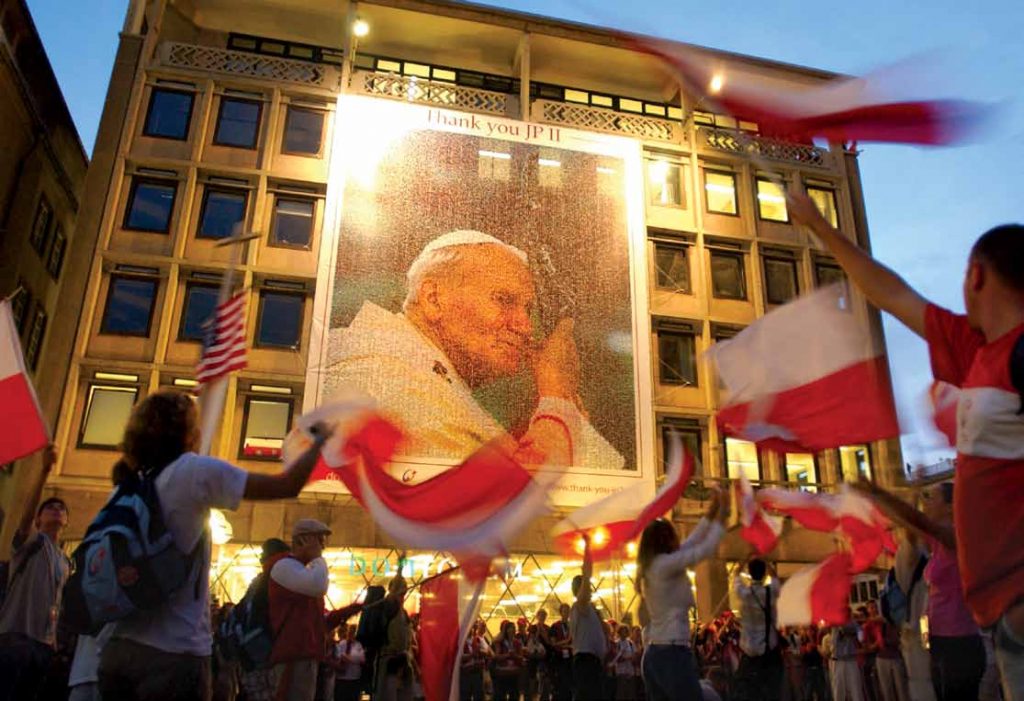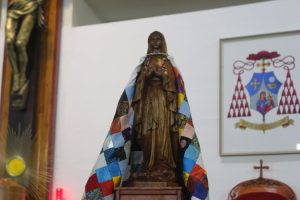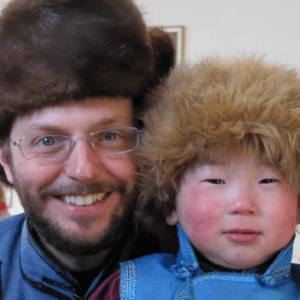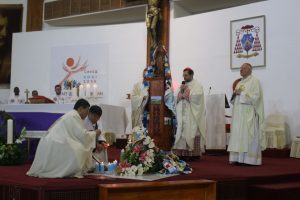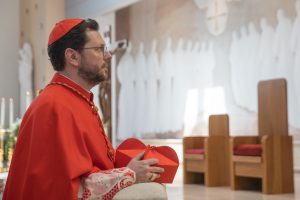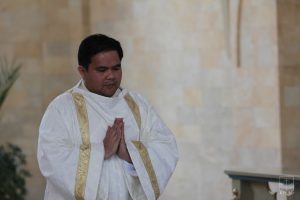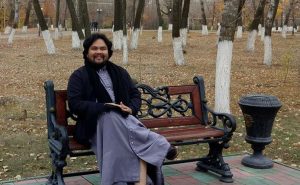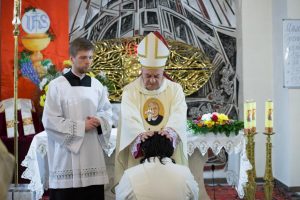April 2nd marks the 14th anniversary of the death
of Pope John Paul II, who left a rich spiritual heritage on 85 thousand pages.
Let us turn to his review.
Pope John Paul II bravely preached God’s truths all his life, not caring about his own popularity and not adjusting to the expectations of the audience. With great love he spoke of the foundations of the Christian faith, which the world today neglects and abhors. He stubbornly went “against the current”, not agreeing to compromises in matters of faith and morality. Therefore, we should once again think about the most important truths that God remind us of through John Paul II.
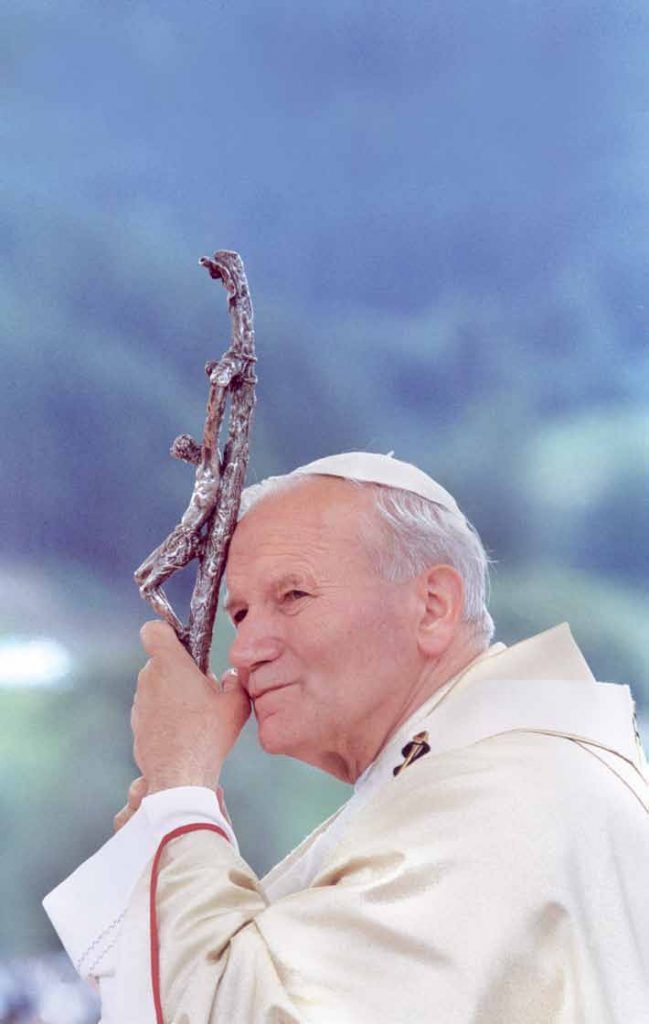
The most important message
St. John Paul II addressed us with the most important words at the very beginning of his pontificate: “It is necessary to pray constantly and not to stop (see Luke 18.1), as the Lord Jesus said. Pray and let prayer shape your life. Man does not live only by bread (Matthew 4.4) and not only in this temporary world, and not only satisfying their material needs, man becomes man. Man is alive not only thanks to bread, but thanks to every single word, emanating and tailored by God. If we want to live by God’s word, we need to keep praying! You can pray even without words. May everyone who listens to me here or anywhere follow the simple and principled papal calling – the calling to prayer. This is the most important message!” (from the sermon on June 7, 1979).
They have no excuse
St. John Paul II emphasized that the Holy Scripture clearly confirms a person’s ability of man to “know God with his own mind: a person is capable of certain “knowledge” of God, although this is not the knowledge obtained directly. So besides “I believe,” there is also “I know.” This “know” refers to the existence of God and to a certain extent to His essence.” He asked the question: “How is it possible that the rapid progress in the knowledge of the universe (both macro- and microcosm), its laws and history, its structures and energy does not lead all to the recognition of the Beginning, without which the world remains unexplained?” (from the sermon of March 20, 1985).
Trying to find an answer to this question, St. John Paul II noted that the Epistle to the Romans (1,18) speaks of people “suppressing the truth by unrighteousness”. St. Paul the Apostle emphasizes here that, because of sins, “their foolish hearts were plunged into darkness. Pretending to be wise, they became stupid” (1, 21-22)*. The Pope explains these verses as follows: “According to the Bible, this kind of stupidity contains a threat to life. The fool lives in an illusion, supposedly has extensive knowledge, but in reality cannot focus on the most important thing. Because of this, he cannot bring order to his own mind (see Proverbs. 1.7) and objectively assess neither himself nor his immediate circle. And when, at last, he begins to assert that “God does not exist” (see Ps. 14[13],1), he reveals the insignificance of his knowledge, and it becomes quite clear how far he is from knowing the truth about things, their origin and purpose” (Fides et ratio, 18).
“If, despite his intelligence, man is not able to know God as the Creator of everything that exists, then the reason is not because he did not have such an opportunity, but rather in his free will, which chooses sin,” explains St. John Paul II (Fides et ratio, 19). In his sermon of July 17, 1985, he said that “many scientists today, as in the past, believe that the framework of scientific research and the joyful, sincere recognition of the existence of God can not only go hand-in-hand, but also be one whole.” The Pope also recalled the survey, which was attended by 398 of the most famous scientists in the world. It turned out that “only 16 of them consider themselves unbelievers, 15 – agnostics, and 367 – believers” (from A. Eymieu, La part des croyants dans les progrès de la science, p. 274).
Thus, the overwhelming majority of the world’s famous scientists are believers. For those who sincerely seek to know the truth, reason and faith constitute a harmonious unity. St. John Paul II taught that the knowledge of God comes only at the level of faith, when we build with Him personal relationships of trust and love. God Himself personally revealed to us the secret of his Triune essence. “Through Christ, the Incarnate Word, people gained access to the Father in the Holy Spirit, and become participants in the Divine nature” (Dei verbum, 2). God wants us to unite with Him in love, and we can know this only through faith, which helps the mind, through “faith, acting love” (Gal. 5,6).
St. John Paul II emphasized that “it is faith that allows everyone to express their freedom in the best way. In other words, freedom does not mean that we begin to act against God. Can it be considered a real manifestation of freedom to refuse to accept what gives us the opportunity for self-realization? The act of faith is the most important choice in human life, and it is in it that how freedom gains confidence in the truth and makes a decision to live in it” (Fides et ratio, 13).
To live by faith means to trust Him fully every day, and trusting God without limit, to do His Will, as expressed in the Commandments, moral laws, the teaching of the Church, the texts of the Holy Scriptures, and the voice of a clear conscience. The believer prays daily, avoids anything that even resembles evil (see 1 Thes. 5,22), and when he falls into sin, he immediately accepts the sacrament of penance to receive God’s wonderful gift of forgiveness of sins.
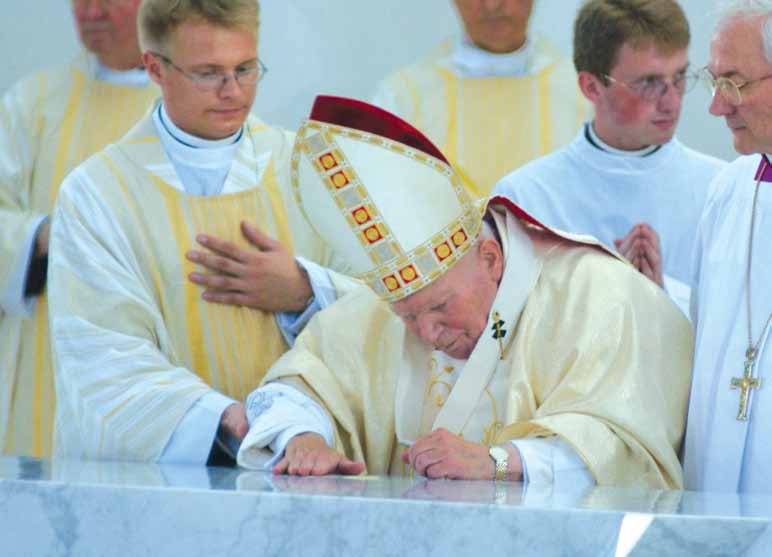
Live according to conscience
St. John Paul II reminds us of our conscience: “The Second Vatican Council calls conscience “the most secret center and temple of man” and explains: “In the depths of conscience, man discovers a law that he does not impose on himself, but to whom must be obedient, and whose voice always calls him to where it is necessary to love and do good, and avoid evil; sounds in the heart of the order: do so, and avoid this” (Gaudium et spes, 16). Conscience is of fundamental importance for every person. It is our inner guide and judge of our actions. “It is important that our conscience is pure, and its condemnation is built on truth, so that good is called good, and evil is called evil. That it should be able to “know what is the will of God, good, pleasing, and perfect” (Rom. 12.2). Being a man of conscience – said John Paul II – means, first of all, the ability in every situation to listen and not to drown out the voice of conscience, although it is often demanding and difficult; it means to do good, multiplying it in yourself and around you, and never agree to evil, according to St. Paul: “Do not be overcome by evil, but overcome evil with good” (Rom. 12, and 21). Being a man of conscience means demanding from yourself, getting up after each fall, constantly turning to God. Being a man of conscience means active participation in the building of the Kingdom of God – the kingdom of truth and life, justice, love and peace – in our families, in our society, in our Homeland. It also means responsibility for public affairs, concern for the common good, empathy for others in their suffering and needs, in the spirit of Evangelical solidarity expressed by the words “bear one another’s burdens” (Gal. 6.2).”
The Pope appealed that our conscience “should not be demoralized, that it should not succumb to the currents of moral arbitrariness, that it should be able to discover the freedom that follows from the gospel councils and God’s Commandments, that it should be able to choose according to the warning of Jesus Christ: ” For what does it profit a man, to gain the whole world, and forfeit his life? 37 For what should a man give in exchange for his life? ” (Mk. 8,36-37)” (from the sermon of Skochov on May 22, 1995).
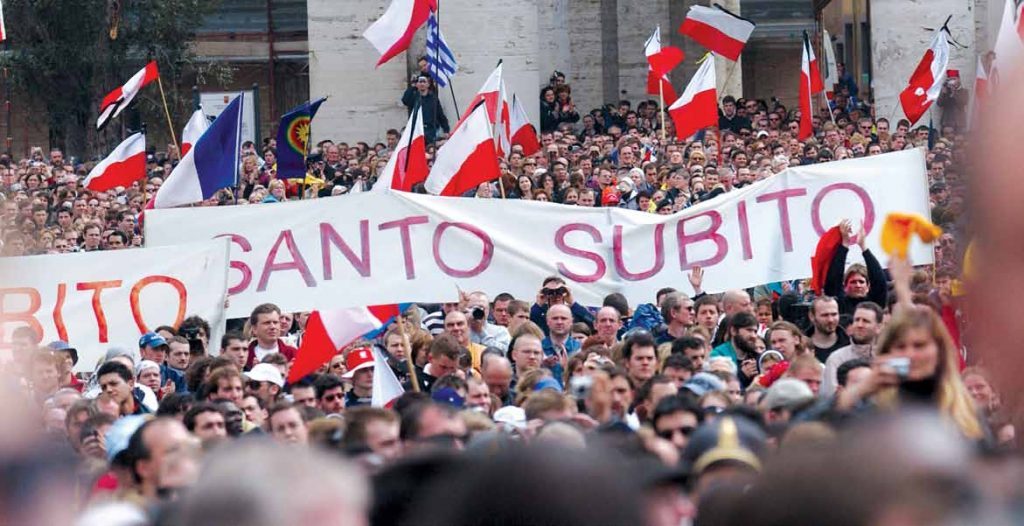
Greatest treasure
On June 2, 1979, Pope John Paul II reminded us in his sermon that the Catholic Church is the greatest treasure of our people and all mankind, because it gives us “Christ, namely the key to understanding this great reality that man is. Man cannot be fully understood without Christ. Even more: the man cannot fully understand himself without Christ. He cannot understand who he is, not his true dignity, no calling, no purpose. Man cannot understand this all without Jesus Christ… And therefore Christ cannot be excluded from human life anywhere on earth.”
The Pope taught that everything most valuable in our spiritual folk tradition and culture has its roots in Jesus Christ. Therefore, after the canonization of John Paul II, we should ask ourselves: what is my attitude towards Jesus Christ and to His Church? From God’s revelation, we know that God became a real person in Christ, and in His earthly life, death, and resurrection he finally overcame all sins and death itself, reuniting people with Himself, thereby creating the community of the Church. Therefore, the Church is a special community of people, which the Bible calls the Mystical Body of Christ: “Do you not know that your bodies are members of Christ?”(1 Cor. 6,15) “For as in one body we have many members, but not all members have the same function, so we, though many, make one body in Christ, and separately one for another members” (Rom. 12,4-5). Jesus Christ himself “is the head of the body of the Church” (Col. 1.18), and we – sinners – are members of His body (see 1 Cor. 12,27). The Catholic Church is the resurrected Jesus Christ, united with us, poor sinners who need of His mercy.
The resurrected Christ calls upon all sinners in need of salvation to be reunited with Him in the community of the Church (see Matt. 9,13). Therefore, the Church is holy, because its head is Christ, but it consists of sinners, whom the Savior frees from the slavery of sins and turns into saints. Christ loves every sinner, but hates sins, because they plunge man into the most terrible misfortunes. It is impossible for us to achieve happiness and the goal of human existence without unity with Jesus Christ, and unity is possible only in His Mystical Body – the Church. Only in the community of the Church can we experience the all-forgiving love of Christ in the sacraments of repentance and the Eucharist, and only in it can we “touch” the living God. Who rejects the Church rejects Christ himself; who hates the Church hates Christ himself, who loves and saves every person.
The history of whole generations of the people of the Church is the history of the cruel struggle of good against evil, the history of conversion and martyrdom for faith, heroic faith and Holiness, as well as the history of human weakness, fall and sins. We must remember that everyone who betrays Christ with his sins becomes like a withered branch. The betrayals that resemble Judas are repeated in every generation, but still Christ constantly leads his Church to salvation, remaining faithful to his promise: “I am with you all the days until the end of the age” (Matt. 27,20).
We should not take any sin lightly, because any sin is the greatest evil in human life and in the life of the Church. But we must remember that Christ founded the Church and is constantly present in It to overcome every sin. Therefore, the criticism of sinners belonging to the Church should not lead to rejection of the Church itself. Does it make sense to reject Jesus just because Judas betrayed Him?
John Paul II during a sermon on June 10, 1979 in Krakow asked us the question: “Is it possible to reject Christ and all that He has brought into the life of people? Sure you may. A person is given freedom of choice. People have the right to say no to God. A person has the right to say to Christ, “No.” But the fundamental question is, what sense does it make? For what? Is there such a reasonable argument, such a value of will and heart, that one can imagine to one’s self and one’s neighbor, and all the people to reject, in order to renounce what we have all lived for over a thousand years? From what created the foundations of our culture and has always been part of our identity?”
The Church is the greatest treasure of mankind precisely because it represents the Mystical Body in which Jesus Christ is the head, and all of us, sinners, are its members. Only in this unity is our salvation and forgiveness of our sins possible, and the final victory of the love of Jesus Christ over Satan, sin and death. The Church is our community in which we are all living members of the one Body. Therefore, it is natural for us to love the Church, because a normal person “never had hatred for his flesh, but feeds and warms it, like the Lord Church” (Eph. 5,29).
Sins calling to heaven
St. John Paul II showed us that we are “standing before an inhuman and tragic battle between good and evil, between death and life, between the culture of death and the culture of life” (Evangelium vitae 28).
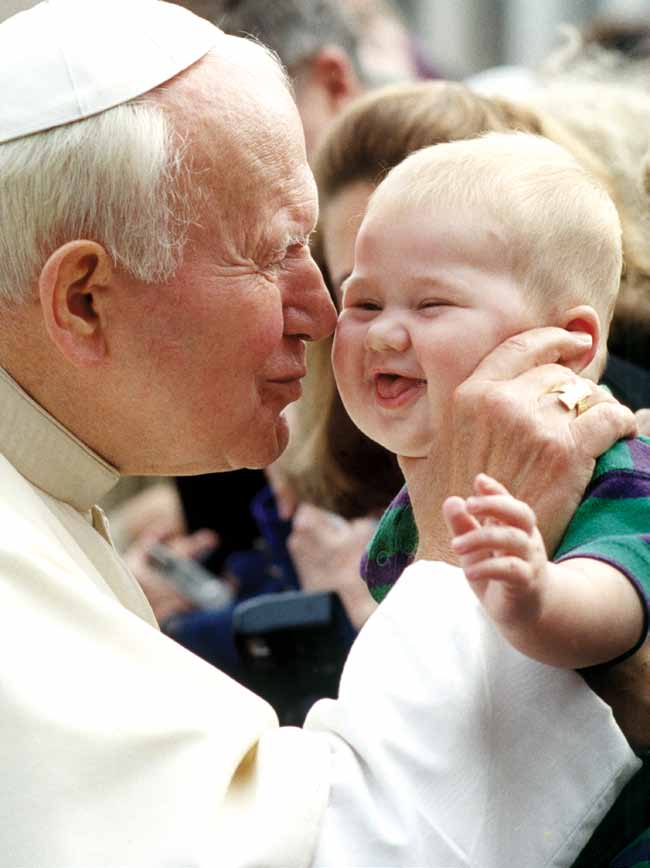
Abortion
The Pope courageously preached the truth revealed by God about the holiness of human life, “belonging exclusively to God: who raises his hand to human life, raises his hand to God himself” (Evangelium vitae 9). He emphasized that the life of every human begins at the moment of conception, and this is a scientifically established fact, independent of religious or ideological convictions. Alas, “a considerable part of the present society, – John Paul II asserted, – consists of people who “suppressing the truth by unrighteousness” (Rom. 1,18), who turn away from God and imagine that they can build a life on earth without Him, who are “vain in their imaginations, and have darkened their foolish hearts; professing themselves to be wise, they were mad” (Rom. 1,21-22). (…) If conscience, which, like the eyes, gives light to the soul (see Mt. 6.22-23), calls evil good, and good evil (see Is. 5,20), this means that it has embarked on the path dangerous degeneration and total moral blindness” (Evangelium vitae 24).
St. John Paul II called abortion a heinous crime (Evangelium vitae 58) and wrote: “By the power of the authority of Jesus Christ, which He passed on to St. Peter and his successors, in unity with the bishops of the Catholic Church, I confirm that the direct and deliberate murder of an innocent person is always a deeply immoral act” (Evangelium vitae 57). “Termination of pregnancy, regardless of the method of its implementation, is a conscious and immediate murder of a human being in the initial stage of his life, in the period between conception and birth. (…) The murder of a man on the threshold of life, the most innocent one imaginable: it is impossible to consider him an aggressor, especially unjust aggressor!”(Evangelium vitae 58).
Recalling the history of the Church, St. John Paul II emphasized that “in the first centuries murder was classified as a part of the group of the three grave sins (along with apostasy and adultery), and that the penitent killer had to go through a long and heavy public repentance before he received forgiveness and could return to the Church community. (…) This should not surprise us, because killing a man created in the image of God is a particularly grave sin. Only God has power over life!” (Evangelium vitae 54-55).
Murder of children conceived artificially and in medical experiments
Speaking about the various methods of artificial reproduction of man, St. John Paul II taught that they are completely unacceptable from a moral point of view, because they tear off childbirth from the “real human context of marital intercourse; in addition, (…) more embryos are produced than are necessary for placement in the mother’s womb, after which the so-called extra embryos are taken from life or used for scientific research, which supposedly serves scientific and medical progress, but in fact reduce human life to the role of “biological material” with which you can do anything” (Evangelium vitae 14).
The Pope strongly condemned and called a “crime against the human dignity” of any use of embryos and human embryos in medical experiments “as donors of organs or tissues for transplantation” because they “have the same right to respect, as already-born child, any other person (…); the killing of innocent human creatures, even if it brings someone a favor, is absolutely unacceptable” (Evangelium vitae 63).
Euthanasia
St. John Paul II emphasized that euthanasia is one of the “most outrageous manifestations of the culture of death, especially in well-to-do societies, whose thinking is directed towards efficiency, for which the presence of an increasing number of old and unwell people seems too heavy a burden” (Evangelium vitae 64). He declared, using the authority of Jesus Christ, transmitted to the Apostles, that “euthanasia is a serious violation of God’s Law, being morally unacceptable voluntary murder of man. (…) The practice of euthanasia contains the evil characteristic of suicide or murder, depending on the circumstanes” (Evangelium vitae 65).
“The apogee of arbitrariness and injustice is the situation when some (for example, doctors or lawmakers) ascribe to themselves the power to decide who has the right to live and who should die. There is the same temptation as in the garden of Eden: to become like a God who knows good and evil (see Gen. 3.5)” (Evangelium vitae 66). “No one and nothing can give the right to kill an innocent human being, be it an embryo, a child, an adult or an old man, terminally ill or dying. Moreover, no one can demand that such a murder be committed against him or another person, and no one can either indirectly or directly consent to it. No power has the right to force this and to allow it” (Evangelium vitae 57).
“So abortion and euthanasia are crimes that no human law can call permissible. The laws that do so not only have no power over the human conscience, but also put a person before a serious and specific requirement to oppose them with the power of conscience. Thus, in the case of an unjust law allowing termination of pregnancy and euthanasia, no one can be obedient to such a law and participate in the formation of public opinion that accepts such a law, and it can not be supported by voting” (Evangelium vitae 73).
Every believer who contributes in any way to the murder of conceived children (by abortion or artificial insemination) is subject to expulsion from the Church. “Excommunication – says St. John Paul II – is dealt to everyone who commits this crime, knowing what punishment is due for it, as well as accomplices, without whom this crime would not have been committed. With such severe punishment, the Church indicates that this crime is one of the most serious and most dangerous, thus pushing criminals to find a way of conversion. Excommunication from the Church exists in order for the guilty to understand the severity of the sin committed, to come to the necessary repentance, and to turn to God” (Evangelium vitae 62).
*Quoted from New Russian Translation (NRT) of the Bible
Source: O. Mechislav Petrovsky. Spiritual heritage of St. John Paul II. Love each other, 2015, № 1(18), P. 4-9.
